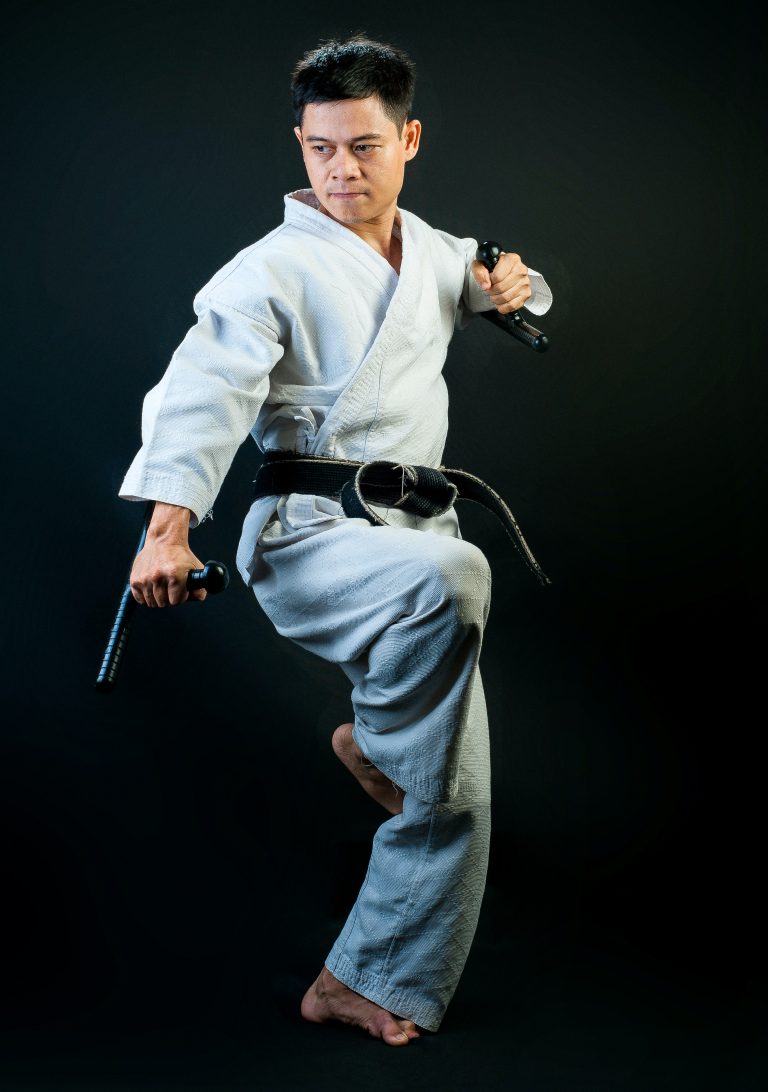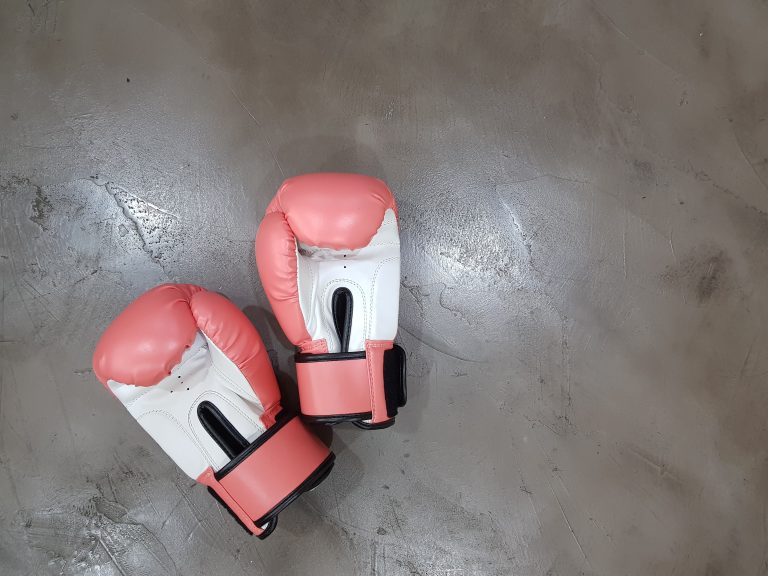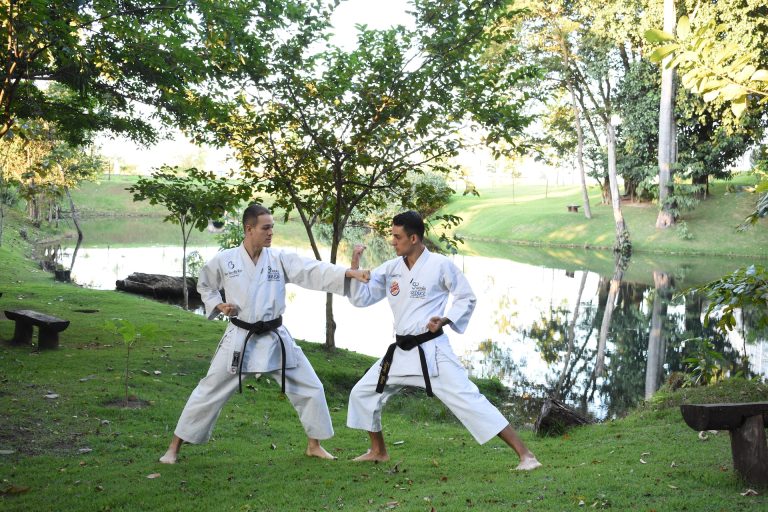Karate and its effects on physical and mental health
Karate is a martial art that originated in Okinawa, Japan, in the 19th century. It is a physically demanding practice that is not only beneficial for self-defense but also for improving our physical and mental health. In this blog post, we will discuss the positive effects karate has on our bodies and minds.
Physical Health Benefits of Karate
One of the main benefits of practicing karate is that it is an excellent way to improve our overall physical health. Some of the benefits include:
1. Cardiovascular health
Karate is a high-intensity exercise that improves our cardiovascular health. Regular practice helps to lower blood pressure, reduce the risk of heart disease, and improve our overall endurance.
2. Strength and flexibility
Karate movements require significant strength and flexibility, and regular practice helps to build and maintain these qualities. Strengthening the muscles helps to reduce the risk of injuries and makes our everyday activities easier.
3. Improved balance and coordination
Karate movements require a great deal of balance and coordination. Practicing these movements regularly helps to improve our balance and coordination, which reduces the risk of falls and injuries.
Mental Health Benefits of Karate
Karate is not just an excellent way to improve our physical health, but it also has several mental health benefits. Some of these benefits include:
1. Reduced stress and anxiety
Karate is a great stress-reliever. It requires focus, concentration, and discipline, which all help to reduce stress and anxiety.
2. Increased self-confidence
Karate helps to improve our self-confidence by teaching us new skills and techniques. As we progress in our training, we become more confident in our abilities, and this confidence carries over into other areas of our lives.
3. Improved mental clarity
Karate requires us to be present in the moment, which helps to improve our mental clarity. Practicing karate frequently helps us to remain focused and alert, which can translate into other aspects of our lives.
Conclusion
In conclusion, karate is much more than just a martial art. It is an excellent way to improve our physical and mental health. Regular practice can help to lower blood pressure, increase strength and flexibility, reduce stress and anxiety, and improve our self-confidence and mental clarity. If you are interested in improving your overall health, karate may be an excellent option to explore.
The Most Frequently Asked Questions About Karate and Its Effects on Physical and Mental Health
Karate is a popular martial art that originated in Japan. It has gained worldwide popularity due to its effectiveness in self-defense, physical fitness, and mental discipline. Many people wonder about the benefits of practicing karate and its positive effects on their health. In this blog post, we will answer the most frequently asked questions about karate and its effects on physical and mental health.
1. What is karate?
Karate is a martial art that emphasizes strikes, kicks, punches, and blocks. It originated in Okinawa, Japan, in the late 19th century and became popular worldwide in the 20th century. Karate is not only a self-defense technique but also a way of life that promotes physical fitness, mental discipline, and self-awareness.
2. What are the health benefits of practicing karate?
Practicing karate has many health benefits, including:
- Improved cardiovascular fitness: Karate training involves high-intensity exercises that can help improve cardiovascular fitness and reduce the risk of heart disease.
- Increased muscular strength and endurance: Karate involves various movements that target different muscle groups, resulting in increased muscular strength and endurance.
- Better flexibility: Karate training involves many stretching exercises that can enhance flexibility and range of motion.
- Enhanced balance and coordination: Karate training can improve balance and coordination by strengthening the muscles and promoting better control of body movements.
- Reduced stress and anxiety: Karate training involves mental discipline and relaxation techniques that can reduce stress and anxiety.
- Improved focus and concentration: Karate training involves mental discipline and cognitive training that can improve focus and concentration.
3. Is karate safe?
Karate is generally safe when practiced with proper supervision and precautions. However, as with any physical activity, there is always a risk of injury. It is important to follow safety guidelines and use protective gear such as gloves, shin guards, and mouthguards. It is also essential to practice proper techniques and gradually increase the intensity and duration of training.
4. Can anyone practice karate?
Karate is suitable for people of all ages and fitness levels. However, it is essential to consult a doctor before starting any physical activity, especially if you have any health conditions or injuries. Also, it is important to find a reputable instructor and dojo that can provide proper guidance and instruction.
5. What equipment do I need to practice karate?
The equipment needed to practice karate includes:
- Uniform: Karate practitioners wear a traditional white outfit called a gi.
- Belt: Karate practitioners wear a colored belt that indicates their level of proficiency.
- Protective gear: Karate practitioners may use various protective gear such as gloves, shin guards, and mouthguards.
- Training equipment: Karate practitioners may use various training equipment such as punching bags, kicking pads, and focus mitts.
6. How long does it take to master karate?
The time it takes to master karate depends on various factors, such as:
- Frequency of training: The more frequently you practice, the faster you can progress.
- Quality of instruction: The quality of instruction and guidance can affect the speed of progress.
- Level of dedication: The level of dedication and commitment can determine the speed of progress.
- Individual differences: Some people may progress faster than others due to individual differences in physical and mental abilities.
It generally takes several years of consistent training and dedication to become proficient in karate. However, mastery is a lifelong journey that requires continuous practice and learning.
7. Is karate a good way to lose weight?
Karate can be an effective way to lose weight and maintain a healthy body composition. Karate training involves high-intensity exercises that can burn a significant amount of calories and fat. Also, karate promotes muscular strength and endurance, which can increase metabolism and promote fat loss.
8. How does karate improve mental health?
Karate can improve mental health in various ways, such as:
- Promoting mindfulness: Karate training involves mental discipline and focus that can promote mindfulness and self-awareness.
- Reducing stress and anxiety: Karate training involves relaxation techniques that can reduce stress and anxiety.
- Building confidence and self-esteem: Karate training can help build confidence and self-esteem by promoting self-discipline, self-control, and self-defense skills.
- Enhancing cognitive abilities: Karate training involves cognitive training that can improve cognitive abilities such as attention, memory, and problem-solving.
9. Can karate be used for self-defense?
Karate is an effective self-defense technique that can be used to protect oneself in dangerous situations. However, it is essential to understand that self-defense is not only about physical techniques but also about awareness, avoidance, and de-escalation strategies. Also, it is important to use self-defense techniques only as a last resort and to seek help from authorities if necessary.
10. Is karate suitable for children?
Karate can be a suitable activity for children as it promotes physical fitness, mental discipline, and social interaction. However, it is essential to find an instructor and dojo that specialize in children’s karate and provide a safe and age-appropriate environment. Also, it is crucial to involve children in karate training voluntarily and not force them to participate.
In conclusion, karate is a martial art that offers many health benefits, such as improved physical fitness, mental discipline, and self-defense skills. However, it is essential to practice karate with proper supervision and precautions and find a reputable instructor and dojo that can provide proper guidance and instruction. Whether you are a novice or an advanced practitioner, karate can be a lifelong journey of learning and self-improvement.
Inhaltsverzeichnis






